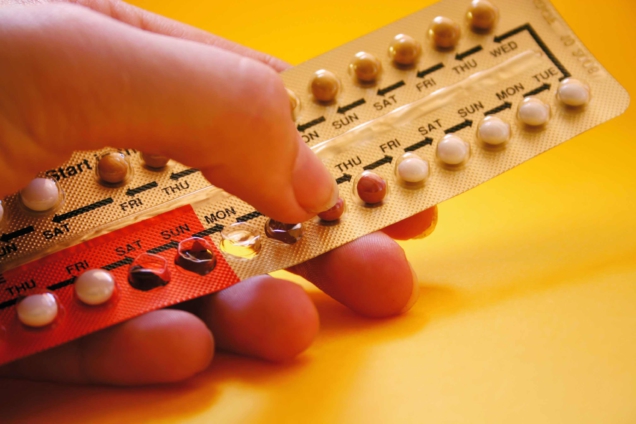A medical practitioner says women are more likely to suffer from stroke because of the prolonged consumption of oral contraceptives.
According to Dr Collins Abaitey Muzu, these oral medications when used for a long may result in clotting in the vessels which transport blood from the heart to the brain.
"The reason why women are said to have a higher risk of having stroke more than men is because of the use of oral contraceptives and pills."
"They’ve been found to increase the incidence of stroke because these medications increase the chances of clot formation in the blood vessels,” he said.

Speaking on Joy Prime’s Prime Morning, he explained that these clots block the free flow of nutrient-carrying blood to the brain causing the cells within that deprived part of the brain to die and hence stop functioning.
“There’s a type where there’s a clot that is blocking the flow of blood to the brain, there’s a clot that is sitting in the artery that goes to the brain or within the brain.”
“When that happens, because the artery is blocked and blood cannot flow beyond the clot, that part of the brain that is supplied blood by that particular artery will die off and lose its function, the cells within that brain will die because there’s no blood going in.”
“The brain has so many parts, and every part of the brain has a function that it performs, so if an artery that is going to the part that controls maybe my arm is impaired and then there’s no blood going to that part, that part of the brain loses oxygen and dies off and cannot perform its function.”
“That’s when you see that people have stroke and they can’t move their hand or their legs or they can’t talk because the part that controls that function is lost because there’s no blood or oxygen,” he explained.
Dr. Muzu also added that older or post-menopausal women who take hormone replacement therapies for a long time are at a higher risk of getting stroke due to clotting in the blood vessel which prevents blood from going into the brain.
This medication contains female hormones which tends to replace the estrogen that the body stops making during menopause.
Latest Stories
-
I want to focus more on my education – Chidimma Adetshina quits pageantry
3 hours -
Priest replaced after Sabrina Carpenter shoots music video in his church
3 hours -
Duct-taped banana artwork sells for $6.2m in NYC
3 hours -
Arrest warrants issued for Netanyahu, Gallant and Hamas commander over alleged war crimes
3 hours -
Actors Jonathan Majors and Meagan Good are engaged
3 hours -
Expired rice saga: A ‘best before date’ can be extended – Food and Agriculture Engineer
3 hours -
Why I rejected Range Rover gift from a man – Tiwa Savage
3 hours -
KNUST Engineering College honours Telecel Ghana CEO at Alumni Excellence Awards
4 hours -
Postecoglou backs Bentancur appeal after ‘mistake’
4 hours -
#Manifesto debate: NDC to enact and pass National Climate Law – Prof Klutse
4 hours -
‘Everything a manager could wish for’ – Guardiola signs new deal
4 hours -
TEWU suspends strike after NLC directive, urges swift resolution of grievances
5 hours -
Netflix debuts Grain Media’s explosive film
5 hours -
‘Expired’ rice scandal: FDA is complicit; top officials must be fired – Ablakwa
6 hours -
#TheManifestoDebate: We’ll provide potable water, expand water distribution network – NDC
6 hours

